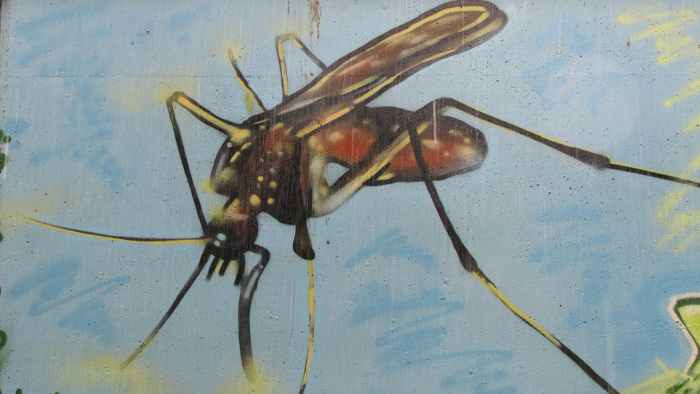New courses on a relevant topic
The new module, which has been introduced to the curriculum in the summer semester 2021, consists of a lecture and a seminar. In the lecture, students learn about the interlinkages of biodiversity loss, climate change and land use change with human and animal health. Furthermore, various concepts like “One Health” and “Planetary Health”, as well as important stakeholders, are introduced. In the seminar, students discuss current topics of research, with a focus on zoonotic diseases. In particular, the impacts of global change drivers on the appearance and distribution of these diseases is analyzed. Covid-19 is just one of many diseases discussed. Nevertheless, the present pandemic has advanced the research on the biodiversity - climate change - health nexus and enabled the development of additional political instruments and cooperation between stakeholders in this field.
Motivation behind creating the module
The lecturers, Dr. Thomas and PD Dr. Pfeiffer, view the topic of health in a globalized world as a necessary addition to the “Global Change Ecology” curriculum, particularly since the start of the pandemic. As a researcher in Geoecology, Dr. Thomas has worked on vector-born zoonotic diseases and the impacts of global change drivers on them for the past 10 years. She has been coordinating the Elite Graduate Program “Global Change Ecology” for the same amount of time. She indicates her goal for the new module when she says, “I want to widen the student’s horizons, and illustrate how environmental change can always impact human, animal or plant health. I also want to show them interlinkages between these issues, as well as possible solutions.” PD Dr. Pfeiffer already encountered the health consequences of human and wildlife interactions during his research on Borneo 25 years ago. He says, “For tropical researchers, the issue of disease is always present anyway, because you are exposed to significant disease risks even while doing research - so you can't help but be concerned with the subject matter.” However, many of these exotic diseases and their vectors also reach Germany now, due to drivers such as climate change and globalization.
Discussion with external experts as Wrap-up
The module concluded with a discussion between students and invited external experts. The guests included Prof. Settele, Head of the Department of Conservation Biology and Social-Ecological Systems at the Helmholtz-Centre for Environmental Research and member of the Environmental Expert Panel of the German government, and Prof. Nagel, acting director of the institute of medicine management and health sciences (IMG) at the University of Bayreuth and former member of the German Ethics Council. Students had the opportunity to ask questions about the expert’s research and opinions on current topics, as well as to discuss the knowledge they have gained in the “Biodiversity, Climate Change and Health” module. The discussion was a successful wrap-up for the popular new module at the end of the semester.
Text: Elina Rittelmann, Elite Graduate Program “Global Change Ecology”


